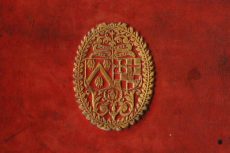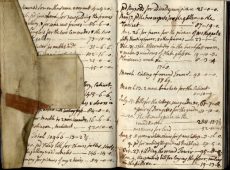- About
- Visiting
- What’s On
- Venue hire
- Catalogues
- Collections
- 101 Treasures of Chetham’s
- Digital Resources
- The Flowers of Histories
- A Book of Hours from France
- The Manchester Scrapbook
- Thomas Barritt of Manchester
- Art Treasures Examiner of 1857
- Manchester Association for Constitutional Order
- The North Western Museum of Science and Industry: Some Reminiscences by Richard Hills
- Criminal Manchester
- The Cup of Destiny
- Athenaeum Souvenir
- Middle English Manuscripts
- Manchester and Liverpool of Today
- Hollingworth’s Mancuniensis
- Memoir of Cecil Wray
- William Seward’s Diary
- The Anti-Monopolist
- Fishwick’s History of Rochdale
- Knyvett’s Defence of this Realm
- Tractatus de Nigromantia
- Axon Ballads
- Printed Books & Ephemera
- Archives & Manuscripts
- Prints and Photographs
- Blog
- Support us
Thomas Barritt’s Sketchbook
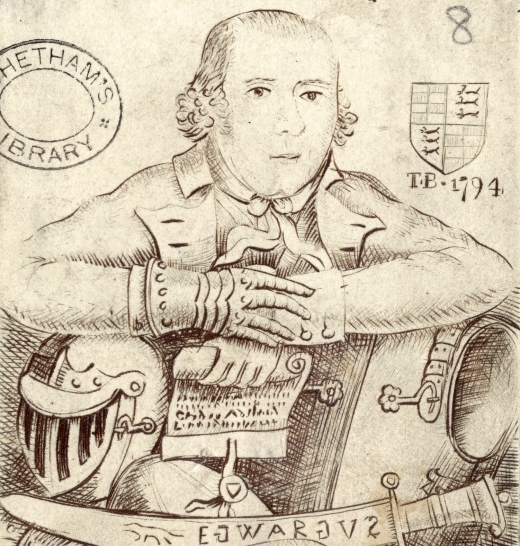
In May 1821 the Library paid seventy pounds to the widow of Mr Thomas Barritt of Hanging Ditch, Manchester, for her husband’s manuscripts. Thomas Barritt was born in 1743 in Withy Grove. At an early age he lost a leg, which he replaced with one of cork. He was a saddler by trade but most of his energy was spent on antiquarian pursuits. Barritt was well aware that the town of his boyhood had been transformed into a major city and his sketchbooks are full of scenes of a bygone and lost Manchester, a view of the pre-industrial town.
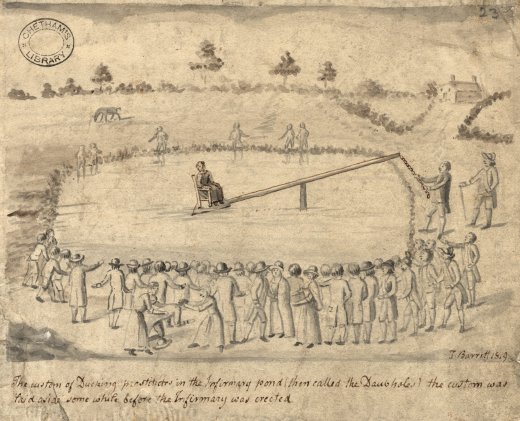
The Manchester Ducking Stool was originally situated at Pool Fold (now off Cross Street), but it was moved to the Infirmary pond (now Piccadilly Gardens) towards the end of the eighteenth century. The ducking stool was traditionally used as a punishment for prostitutes and bawds.
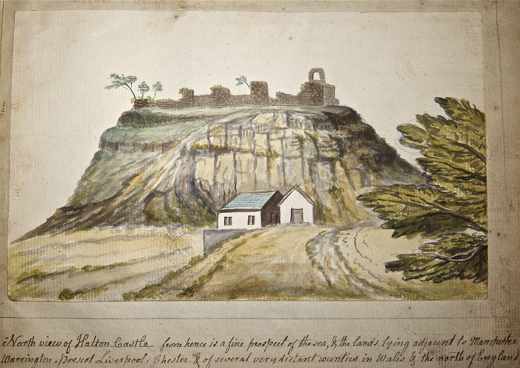
Halton Castle, built in the eleventh century by the barons of Halton, commanded the Mersey crossing near Runcorn. During the Civil War the castle was a crucial site and in the late 1640s its defences were dismantled and it was left in a ruinous condition. Barritt’s illustration is thus an attempt to picture the castle before its destruction.
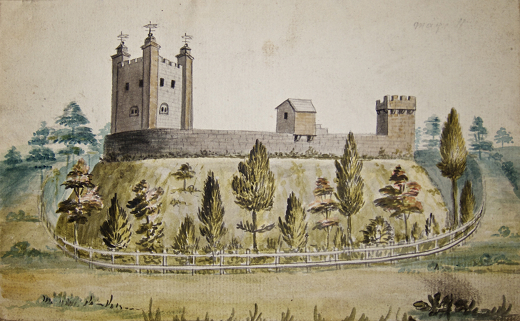
A view of Appleby Castle. Barritt notes: ‘the ditch which is deep is now a shrubbery railed round to prevent accidents or cattle from falling down the precipice’.
